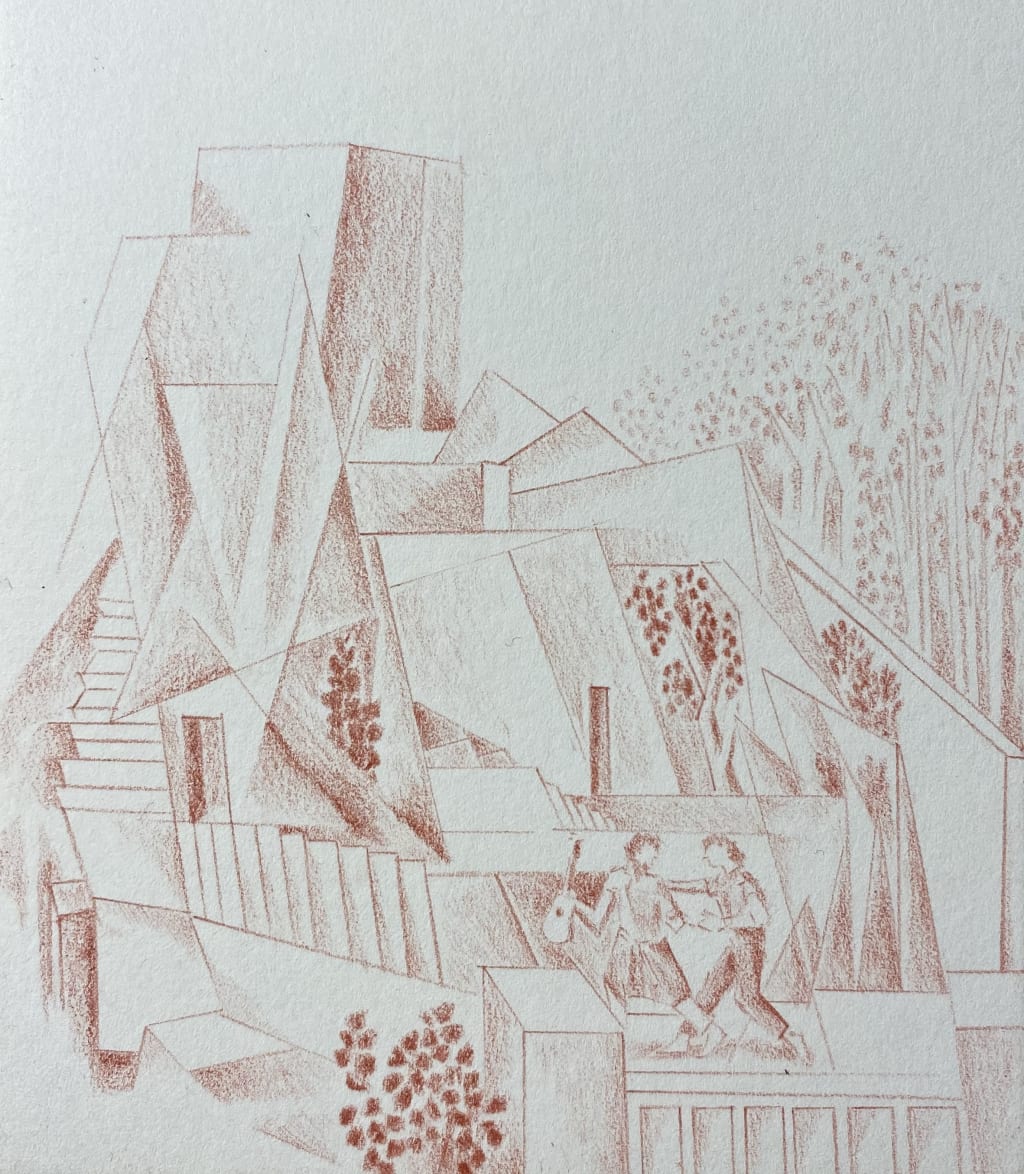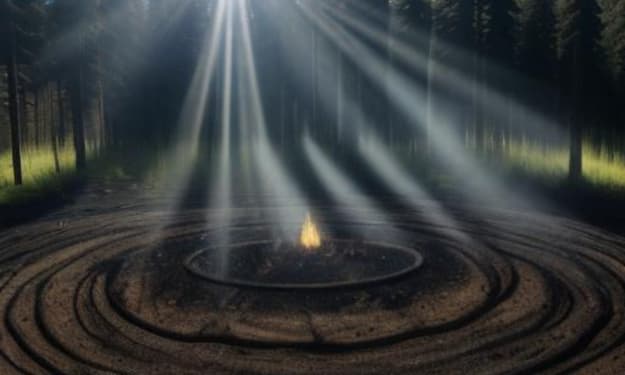
“And so the english word Plague was at some point derived from the Latin plāga which had several meanings: stroke or wound in classical times, or in post-classical times, affliction, illness, or plague – particularly as a sort of divine punishment …” I paused for a moment to look at some gulls sailing overhead toward the williamsburg bridge, adjusted my scarf, then continued reading aloud.
“But plāga is the latinate form of the greek plegē , which had a wider range of uses. Just some of the possible meanings are: a blow or stroke, a stroke of the axe or sword, an impression on the ears or eyes, the impact of bodies, especially of atoms, the collisions and blows that source the motion of atoms, and the blow or stroke of calamity as in the event of death and war (C.f. Notes 1-8).
“So that’s the sort of thing my uncle Adam would have written in his journals up to the time of his death. To say the man had subtle thoughts, or that he was a scholar, a philosopher, or a poet, would be too vacant a generalization. My own language cannot capture him. I cannot speak for him. He was alive. But when the dead have left us they are gone. Yet now, even in death he is as much alive, if not more alive, than the living; these people hurrying along. Nor can I go to some stone or yard to offer him flowers or confront his wraithe. After all, the grounds where his ashes were buried seperated off from those italian cliffs into the Atlantic. For many families, loved ones buried died a second time. But my uncle, even in death, speaks to me from the ink-blackened pages of his journals. In these I come to greet him. And always with a craving for change, as a priest or monk approaches sacred scripture. I never cared much for that cemetary in Italy, and I was unmoved when it gave way to the sea. Besides, its so far away and these days most borders are closed to travelers. As long as I have this book, wherever I go, there he is.”
“The way you speak about him, It seems like he would have wanted it this way, especially in terms of how he thought about physics, you know, those bones of his are just atoms floating in the ocean after all!” She and I laughed. “In some ways, since he became part of the atlantic, he is by extension over there,” she pointed,”and over here! And you heard it from yourself: he speaks to you through his writing. ”
“Yes,” I said.
“A little while ago,” She continued, “when talking about the things he gave you, that he left you a large quantity of his journals and his books and that sort of thing, you said that one was curious and juts out. Does it feature prominently in your eye because of its looks? Is it the one you have here under your arm? That looks handmade. It’s beautiful.”
“Well, yes it is beautiful,” I said, “but they’re all made so. He made each one himself. I think he learned from his books. Going through his things I learned that he had maintained a secret affection for edo period erotica of Japan. There were several of these kinds of works, bound in the very same way as his journals, hiding in a secret drawer he had fashioned in the underneath of his desk. Its pretty unbelievable. I watched him imitate the binding technique when he was staying at the University of Pittsburgh Medical Center in Italy. Even at the threshold of death he was making his books and charcoaling them with words. After stacking the pages neatly against a wooden square, he would fasten them with a thin cable of twisted paper, then trim the edges to an even length upon a mounter, attach the coffee-black cover, pierce a sequence of holes through the spine, and bind the book with bone colored thread. In the end he lost his strength, having very little of his weight left, and I had the distinct honor of making his last journal for him as he walked me through the process.”
“Is this that one?” She asked.
“No. Although that one is special, this one is remarkable for the diversity of its subject matter, and the richness of the part in his life it represents. He made it when he was in his thirties. He had received a sizable grant of twenty thousand dollars from Columbia University to live and work for some time in Greece. He went to collaborate on some translations of the fragments and testimonia of some of the early atomists, the first philosophers to propose the atomic system. He wrote mostly about Leucippus and Democritus of Abdera, who were the first to posit innumerable, indivisible elements which whirl about empty space and combine to form the perceptible bodies we see on the daily, like water, earth, fire, air, flesh et cetera.”
“Yet, while he was trying to pick apart the minds and language of these ancient men, he was also exploring his sexuality with other men. Apart from my family which had rejected him and abused him, he could see himself in a fresh light. In this notebook, like no other, he just lets loose! He’s free. He explores his homosexuality for the first time unfettered by any sort of shame or anxiety; in it, there are nights shared with other men, and wine and music, all of which he writes about in verse and alongside strange fragments which I cant seem to make sense of yet. He falls in love and then out of it. He traveled to different Islands, a philosopher by day and a lover at night. But he seems to have been tortured by his desire. It was the summer of this year when he contracted AIDS, and less than five years later, he was gone. The text is riddled with gaps and holes, spills, and tears. It is a wonderful thing, a journal like this one, kept with him at all times it seems, written out by hand and well worn from use. See? Look here. Shall I read it?”
“Please, lets hear.”
I read:
May
*
You walked away from the house toward the water and (drinking) you tripped;
Caught yourself just as you looked to the foot of the craggs and you gasped.
Still, in the black of your mind headlonged down the praecipices to the surf,
You shuddered within the frame of your body . Your eyes were fixed on the brim.
Having then had enough of the saline dream, you returned to the yard.
I held your shoulder, and you the rail, as we went together up the croaking stair,
To the soft silk sheets and the incense burning bedside, and the sweet lyre.
*
Letters and words derive their meaning by convention. Meaning is not fixed, stable, or intrinsic to the matter (the ink or graphite), or the form (the shape). So from mind to mind each word has a distinct flavor. When Mikkis, he’s beside me now, describes “void” it is “horrible” and “disgusting.”. He says that when he achieves sight of the void (or what he calls the meaninglessness) he worries that it will remain in view, that he will become stuck. Staring down at the truth froum such unsettling heights stirs up his gut and makes him nauseous.
*
Since all things are some admixture of atoms and void, perception, sensation, thought, and opinion each take the form of some kind of “touching” or collision – they are products of discrete, corporeal interactions between atoms of various shapes, sizes and arrangements.
*
More often we are left to make use of the signs and wonders of their motions. Kavafy’s final motion was to draw a circle with one point at the center, or perhaps an archaic theta?
*
When the dead have left us, they are gone; erased from the being of things;
Their bodies reduced to bones, to ashe, to dust.
In death we are again reduced to just those elemental things from which nature fashioned us in the dark wombs of our mothers.
*
beside a greedy sea
near greedy waters
*
change is death
*
On the boardwalk stopped to watch and hear greyshirt play santouri.
He regarded the water as it tossed brilliant beams of sun all over him.
The winds blew increasingly strong and changed the magnitude and frequency of the wavebraking, the sound too.
Altogether very cool, an austere evening.
If reduced to one color these would surely be phthalo
or some deeper sort of veridian.
*
Numbed by the rootmeal and the cold he was at a loss for language.
None of the words fit his mouth right. Instead he felt.
Movements of the hands and wrists against the pole.
*
like stones brought to rest by like stones
carried by the braking waves
sifted by Nature
*
Walking down the alley to the peer I heard a sneeze, then another.
Looked up and saw greyshirt in the complex.
Looked out from his window, at me.
“bless you.”
“Thank you,” he said.
That night I saw him. Down the alley he came.
In the amber light of the lampost he stopped. I went to him.
He leaned closer until I felt his breath on my nostrils.
I was starting to sweat.
Put his hand slowly into my trousers.
Unknown secret in the haemorroidal night.
June
*
I went down to the piraeus last night with Agnus to stay at his family’s home for a while.
This morning the four of us ate together at the table with a view to the yard and the sea.
They divided the paper by section and passed these anticlockwise once they had finished. When it was my turn I gave the rolls to the little dog and he hid them in the yard.
*
Turned to look back at my journal down aways
The waves were crawling further up the shores.
Found ten fossils today.
*
We spent the afternoon in the red sands of Melainou Beach wearing only sunglasses and hats for clothes.
When we were not bathing in the salt foam and entangling our bodies in the seaweed spools,
we reclined on a blanket his mother had woven for him, and, in relays, we read lyrics from the Anacreontea.
I love him, but his affection for me seems increasingly upon the wane.
I feel the effluences of his increasing distance vibrating in the air around me.
*
You don’t love me like you did before. True or false?
Its true.
You don’t find me attractive anymore?
No.
Its why you don’t touch me any more.
Well, I’d say its been decided then. And for some time.
Neither of us said anything for a while. We watched the surf.
Some girls walked past us, glancing.
Im taking the morning boat to Páros, I said.
*
upside down
regarded his copy in the puddle and…
[The text brakes off]
to fall off the earth into the sky below.
*
Notes:
1. c.f. "plague, n." OED Online. Oxford University Press, March 2021. Web. 2 March 2021.
2. c.f. Heraclit. II, Pl. criti.
3. c.f. Pi.P.4.246
4. c.f. Alexander de sensu 56, 12: “they attributed site to certain images, of the same shape as the object, which were continually streaming off from the objects of sight and impinging on the eye. This was the view of the school of Leucippus and Democritus.”See also Pl. Ti. 67b.
5. c.f. Archyt. I, Epicur. Fr. 308
6. c.f. Alexander Met. 36, 21: “[sc. Leucippus and Democritus] say that the atoms move by mutual collisions and blows.”
7. c.f. Aeschylus, Persians 250: [Herald:] O land of Persia, harbour of immense wealth! How all your great prosperity has been ruined in a single blow, and the flower of the Persians are fallen and departed!
About the Creator
A.T. Fickel
Austin is a student in New York earning his Bachelors of Fine Arts with a minor in Classical Studies.
Enjoyed the story? Support the Creator.
Subscribe for free to receive all their stories in your feed. You could also pledge your support or give them a one-off tip, letting them know you appreciate their work.






Comments
There are no comments for this story
Be the first to respond and start the conversation.